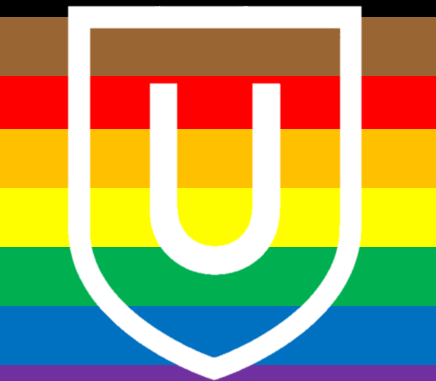
Things may seem dark, but a sense of community can still be a light. I want to remind all queer students and allies that there is a community for them on campus. Luke Skinner ‘26 reminds us, “Queer people have always been here. I know it’s a tacky slogan, but I say it to mean that we have been through more than this election and can get through this, too. The way people survive is by getting involved and building community.”
We are fortunate to have many excellent resources on campus that act as accepting, safe spaces, whether it is the IIE [Institute For Inclusion and Equity], professors, or the GSA [Gender Sexuality Alliance]. This week I spoke to representatives from the GSA, Anita Farrell ‘27 and Kat Carey ‘27, the Vice President of the GSA, about what resources are on campus for queer students and what students can do to stay safe and find other resources. The GSA has weekly meetings on Wednesdays (6:30-7:30 in Pfahler 210).
Farrell encourages anyone who may want to get involved or wants a welcoming environment to share experiences with like-minded students to come. Additionally, they wanted to pass on advice and resources that students can use.
One of the first resources they shared with me is the LGBTQ+ Health and Support from the Montgomery County Department of Health and Human Services. This resource provides great information on resources in the Montgomery area for queer people. Some of these resources include transgender care resources, mental health support, sexual and reproductive health, and many more available resources near campus. This is a wonderful resource to use, and it is beneficial to both queer students and allies.
The next resource I was given was an article by Erin Reed, a transgender activist and journalist who wrote a short guide on how to stay safe as a trans person. The article outlined a few ways transgender people can stay safe, some of which I will share here.
Reed encourages people to update their passports because they are needed for international travel and serve as a valid ID. Additionally, you can update or apply for a passport online and can select the gender of your choosing when you do so. Passports are valid for ten years, though the waiting list is getting longer so the sooner you update your passport, the better.
Reed also encourages people to update their state IDs and documents. Reed also notes that you can change your gender marker with the Social Security office. Reed encourages people to change their identification with the state and the Social Security office so that all documents match. It is also important to have your documents match at both a state and federal level, and again, you can apply and fill out the documentation online, through the government websites.
A final suggestion that Reed shares in the article is the possibility of going “stealth.” Going “stealth” means not disclosing that you are a transgender individual and taking additional care to present as cisgender. Your safety matters, and you should do whatever makes you the most safe and comfortable. You do not owe people a particular part of yourself, nor should you make yourself uncomfortable or put yourself in harm’s way for others.
Allyship is critical during this time. Allies need to be vocal about their support for queer people because, without supportive allies, it all falls on queer people to be constant activists and educators. It is also not always safe for queer people to educate others, so if allies can do so, not only is that educating someone, it is also protecting queer people. Allies are also a wonderful community that queer people can use as support; it is vital to remember that community is essential and steadfast allies are a great community.
Additional advice I would like to pass on is that because of our college campus setting, some may not be able to express themselves as they do at home because of their state or family matters. Please be respectful to everyone and mindful about sharing personal information with others. Some people are not ready to be fully out for a multitude of valid reasons. Please respect others’ privacy and wishes.
In closing, Farrell reminds everyone that in addition to the weekly meetings that the GSA holds, there are also special events that are held throughout the year. They note that there are many ways to get involved in activism, and one of the easiest ways is to involve yourself with a community/organization like the GSA.
The IIE is also an excellent resource, and Carey states, “Educate yourself on different topics you have not understood or never heard of before. Learn the history of various movements surrounding that topic and the reality of it all. Then start small. Activism is daunting at first, so you should ease into it.” Please be kind to each other and remember that things will get better. “We are powerful because we have survived.” – Audre Lorde
